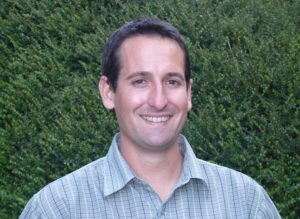Conference Speakers
Dr Cedric J. Simon
Senior Research Scientist in Aquaculture Nutrition, Integrated Sustainable Aquaculture Production, Agriculture and Food Business Unit, CSIRO
 Cedric Simon is the newly appointed Aquaculture Nutrition Leader for the Integrated Sustainable Aquaculture Production team, part of CSIRO Agriculture and Food Business Unit. Cedric Simon is the newly appointed Aquaculture Nutrition Leader for the Integrated Sustainable Aquaculture Production team, part of CSIRO Agriculture and Food Business Unit.
As a Senior Research Scientist, his role is to initiate, lead and contribute to a wide range of research projects which assess, review and analyse impacts of dietary changes on aquatic animal production. This is done within national and international settings and integrates with complimentary work in genetics, reproduction biology, aquatic animal health,
environmental management and socio-economics.
Cedric has broad research interests including the digestive physiology and nutritional requirements of crustacean, fish and molluscs, the non-invasive assessment of nutritional condition, feed additives, and sustainable aquafeed ingredients and formulation. He holds a PhD in Marine Science from the University of Auckland and a BSc in Aquaculture from James Cook University.

Cedric Simon, CSIRO Integrated Sustainable Aquaculture Production Program
Nigel Preston, Director General, WorldFish, Penang
Andrew Chalmers, Business Development and Commercial, CSIRO Agriculture, Canberra
Abstract
Every year 20-30 million metric tons of fish, one third of the global fish catch, is used to produce aquafeeds. This practice is unsustainable and a critical threat to the viability of the global aquafeed industry. Until recently, global efforts have failed to find alternatives that totally match or improve the cost and nutritional performance of wild fish products while reducing the burden on the natural environment. However, a novel innovation using natural marine microbial processes has achieved this goal, a world-first achievement in the sustainability and cost-effectiveness of aquafeeds.
The technology uses natural marine microbial processes to bio-convert plant wastes, such as bagasse or rice straw into a bioactive product (Novacq™) that improves the growth and health of farmed prawns and eliminates the need for any wild harvest fishmeal in prawn feeds. The technology is patented and in full-scale commercial production by several licensees in a number of countries. The development of Novacq™ (an abbreviation of novel aquafeed) is an example of why we need to rethink the way we produce aquafeeds. We need to continue to learn from nature how to produce sustainable aquafeeds and industrialize these processes in cost-effective ways.
|



 Cedric Simon is the newly appointed Aquaculture Nutrition Leader for the Integrated Sustainable Aquaculture Production team, part of CSIRO Agriculture and Food Business Unit.
Cedric Simon is the newly appointed Aquaculture Nutrition Leader for the Integrated Sustainable Aquaculture Production team, part of CSIRO Agriculture and Food Business Unit.